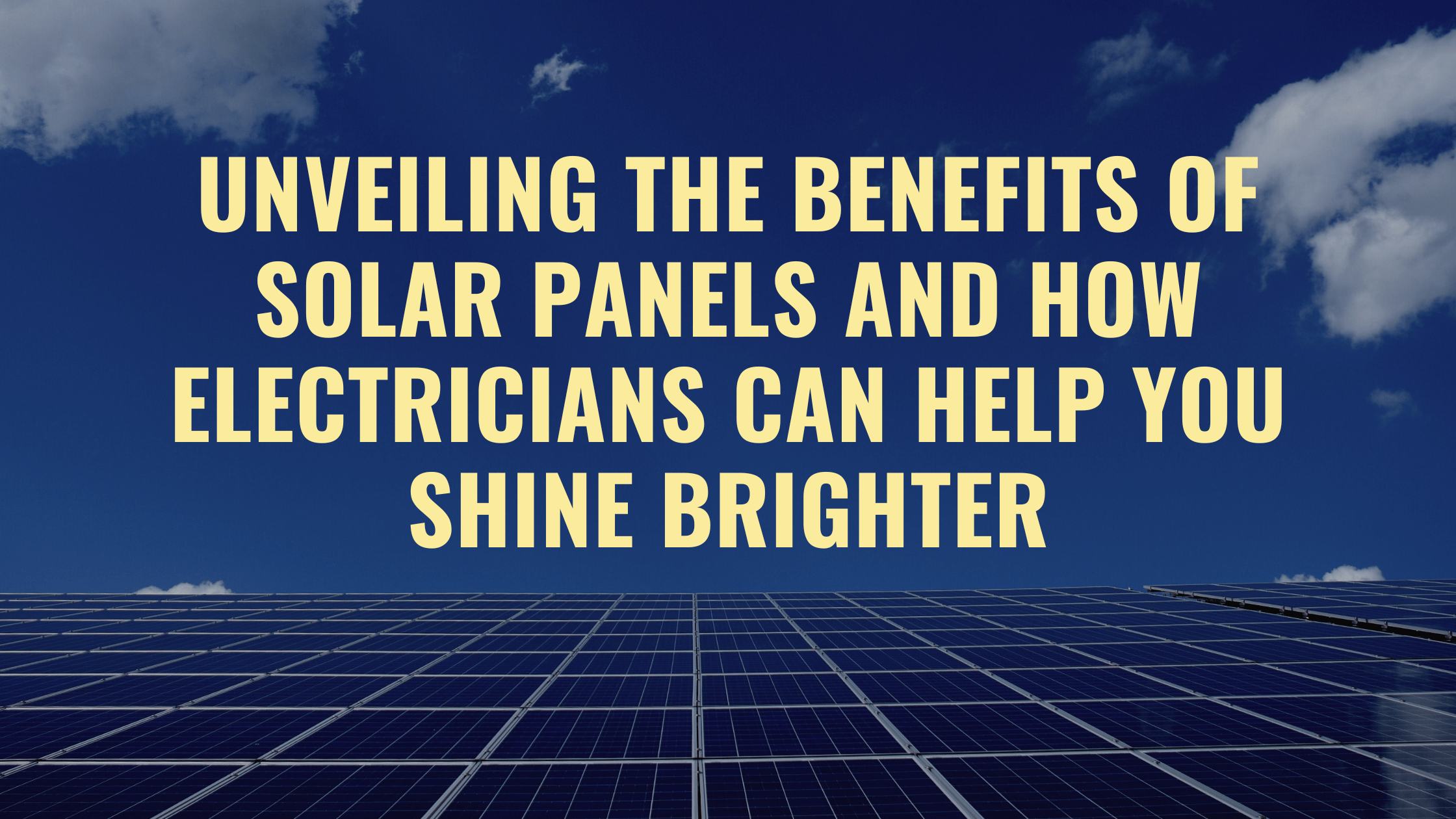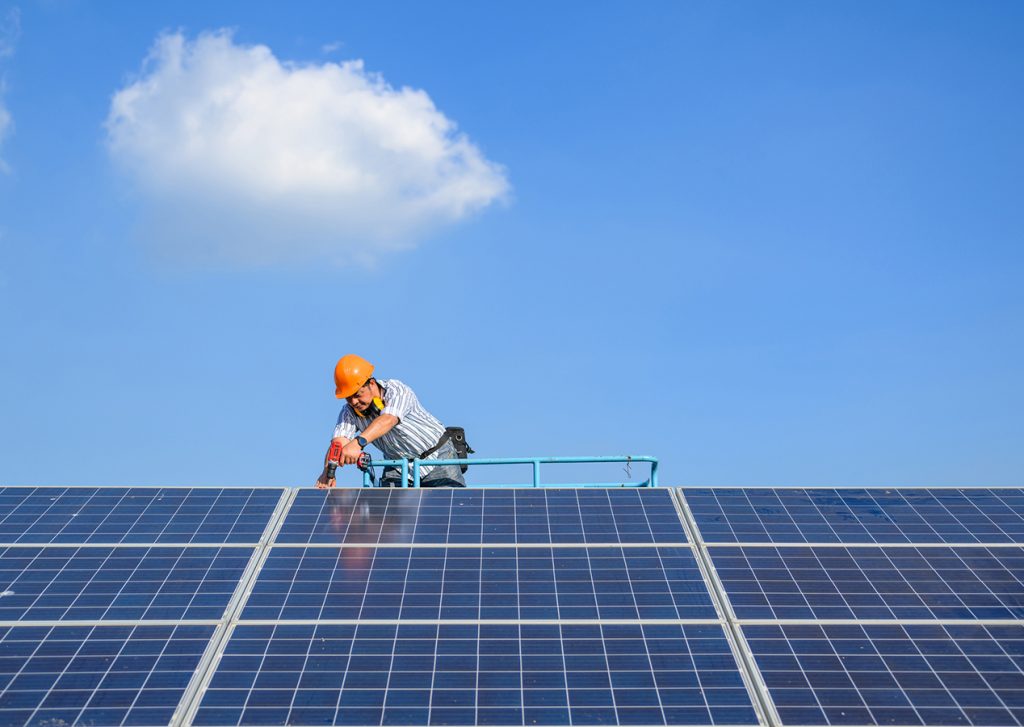Exactly How Solar Energy Can Help You Save Cash and Reduce Your Carbon Footprint
The integration of solar power into your power profile offers an engaging chance for both monetary cost savings and environmental stewardship. By utilizing the sun's power, property owners can significantly reduce their regular monthly utility expenses while additionally guarding versus the unpredictability of future energy costs. In addition, the shift to solar adds to a marked decline in carbon discharges, lining up personal money with more comprehensive environmental goals. As numerous government incentives appear, the question arises: just how can one successfully browse the first financial investments and ongoing benefits of solar technology to optimize both financial and ecological gains?
Recognizing Solar Power Cost Savings
While the transition to solar energy usually includes a first investment, recognizing solar power financial savings is essential for home owners and services alike. Solar power systems can significantly minimize electricity expenses by utilizing the sun's power, equating right into significant long-term monetary benefits. By producing their own electrical energy, individuals reduce dependence on grid power, which is subject to varying costs. These savings can accumulate gradually, frequently causing a rapid return on investment.
In addition, solar energy systems might get approved for different monetary incentives, including tax obligation credit scores and discounts, further boosting their cost-effectiveness. The accessibility of web metering permits individuals to offer excess energy back to the grid, creating an additional earnings stream. These factors contribute to the overall cost savings related to solar energy.

Along with route monetary cost savings, solar energy uses the included advantage of boosting residential or commercial property value. Houses geared up with solar panels are typically a lot more eye-catching to customers, as they assure reduced power prices - Simply Solar Illinois. Recognizing these components is crucial for any person considering solar power, as it highlights not just the potential economic gains, but additionally the wider ecological and economic advantages of taking on eco-friendly power options
Preliminary Costs vs. Long-Term Benefits
When evaluating solar energy, it is essential to evaluate the first costs versus the long-lasting benefits. The ahead of time investment for solar panels, installment, and associated equipment can be substantial, frequently ranging from $15,000 to $30,000, relying on the system size and home energy demands. This preliminary expenditure might hinder some house owners; nonetheless, it is vital to think about the potential financial savings in time.
Once mounted, solar power systems can significantly reduce or perhaps get rid of regular monthly electrical power bills, bring about considerable long-term economic advantages. Research studies show that home owners can conserve anywhere from $10,000 to $30,000 over the life expectancy of their planetary system, usually 25 years. Additionally, several states use rewards, tax credit ratings, and rebates that can balance out preliminary prices, making solar a lot more available.

Lowering Your Carbon Impact
Decreasing your carbon footprint is an important consideration in today's eco aware society, and taking on solar power is one of one of the most effective methods to achieve this objective. Solar power is a clean, renewable energy that dramatically decreases dependence on nonrenewable fuel sources, which are significant contributors to greenhouse gas discharges.

Moreover, the extensive fostering of solar modern technology motivates the growth of eco-friendly jobs and sustains advancements in energy storage space and effectiveness. The more individuals and companies buy solar power, the higher the collective decrease in carbon emissions, cultivating a cleaner environment for future generations.
Government Motivations and Refunds
Adopting solar energy not just benefits the setting however can also bring about considerable financial cost savings, particularly with the availability of federal government motivations and rebates. Numerous government, state, and local programs are designed to urge home owners and organizations to spend in solar power systems, making the change more affordable.
Among one of the most noticeable incentives is the Federal Investment Tax Credit History (ITC), which permits planetary system proprietors to subtract a considerable percentage of the setup expenses from their government tax obligations. This motivation has been critical in minimizing the ahead of time expenditures linked with solar power systems. Additionally, many states provide their own tax credit scores, grants, and rebates that can even more improve cost savings.
Additionally, some city governments offer real estate tax exceptions for solar setups, making certain that home owners do not encounter raised building tax obligations as an outcome of their sustainable energy investments. Utility firms might likewise provide incentives, including Discover More Here net metering and feed-in tolls, which enable solar power individuals to sell excess power back to the grid.
Choosing the Right Planetary System
Choosing the proper solar system is essential for taking full advantage of energy performance and economic advantages. The decision rests on numerous aspects, including power requirements, budget plan, and available room. House owners ought to begin by analyzing their electrical energy usage to determine the system dimension needed for optimal efficiency.
Next, consider the various sorts of solar technologies readily available. Simply Solar Illinois. Solar (PV) panels are the most common, transforming sunlight directly right into electrical energy, while solar thermal systems concentrate on home heating water. Each type has unique benefits depending on individual demands
Spending plan factors to consider are additionally paramount. Preliminary installation expenses can differ considerably, so it is very important to compare quotes from numerous companies and discover financing options. Federal government motivations and rebates can additionally lower the financial problem, making planetary systems more easily accessible.
Verdict
The ecological benefits of solar power contribute to sustainable practices essential for combating climate change. Federal government incentives enhance the feasibility of solar modern technology fostering, motivating a shift towards a cleaner, more financially reliable energy source.